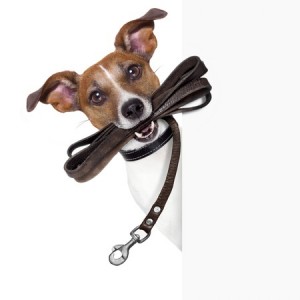Legal Requirements for Dog Tags: Dog Collar Law UK
Dog collars are a common sight when you see dogs in public, but why are they really worn? A dog collar is more than just a decoration. When it comes to taking your dog out in public, it is a legal requirement.
If you have ever wondered what is required to meet the legal standards of a dog collar, then look no further. The vast majority of this is outlined in the Control of Dogs Order 1992, but we have gathered the most essential information, so you no longer feel confused or in the dark about your dog’s collar requirements.
What are the legal requirements of a dog collar?
The main legal requirement of a dog collar is identification. In accordance with the Control of Dogs Order 1992, the information required on a dog collar is the name and full address of the owner, which should be clearly visible on the collar preferably in the form of an inscription or on an attached plate. Your telephone number is not required by law but is nonetheless recommended. This is an easier way for the police to contact you and return your dog in such a situation.
Of course, this law also means that, should you move to a new house, the collar will need updating. An outdated address is of no use to anyone and does not fulfil the requirements of the 1992 Order.
Why do dogs need identification on their collar?
If your dog gets lost, a collar with your home address and contact number can help return your pet when they are found, as well as giving the person who found them the chance to inform you of your dog’s safety! This also saves time for animal services as well as the police when it comes to physically returning your beloved pet home.
Should a dog wear a collar all the time?
It is important to understand when legal requirements of a dog collar should be adhered to as you wouldn’t want to be caught out unexpectedly. Be aware that the legal requirements of a dog collar apply when the dog is out in public, such as along a highway or public property. However, when inside the grounds of your home, for instance, these laws do not apply.
Can you be fined if your dog isn’t wearing a collar in public?
Yes, a dog warden does have the power to enforce this law. If a dog warden finds your dog without a collar, you can receive a fine of up to £5,000 for the offence.
When is it acceptable by law for a dog not to wear a collar?
There are a few exemptions to these rules stated within the Control of Dogs Order 1992. The following circumstances allow for exemptions, as quoted from the order:
- Any pack of hounds
- Any dog while being used for sporting purposes
- Any dog while being used for the capture or destruction of vermin
- Any dog while being used for the driving or tending of cattle or sheep
- Any dog while being used on official duties by a member of His Majesty’s Armed Forces or His Majesty’s Customers and Excise or the police force for any area
- Any dog while being used in emergency rescue work
- Any dog registered with the Guide Dogs for the Blind Association
You should note that when it says “while being used” this refers to the specific times the dog is active in these events. Before and after this period, the dogs will require to be collared and, if there is a relevant DCO in the area, on a lead.
This overview should hopefully highlight the important areas when it comes to dog collars and the law, but the simple explanation is the easiest: it’s better to be safe than sorry.
If you’re out in public ensure your dog has a collar with the correct identification to protect yourself, the dog and those around you. You can browse through our range of dog accessories to find the best fit for your pooch.
Are there other laws or requirements regarding my dog in public?
While not directly stated in the Control of Dogs Order 1992, there are other laws and regulations that require owners to keep control of their dogs.
Dog Control Orders (DCO) for example, can be used by local authorities to require you to have your dog on a lead – which typically requires a collar. Similarly, if your dog is uncontrolled it may scare or terrorise other people. In extreme cases this could warrant investigation into the potential dangerous nature of the dog.
In short, having a collar (with a lead) also helps comply with other laws and regulations. As with the 1992 order, you can face a fine for breaking a DCO. In this case, there is a £50 fine on the spot with further costs of up to £1,000 if it reaches court.
As well as ensuring your dog has a dog collar, it’s also important to protect yourself from unexpected vet bills with Argos Pet Insurance provided by Pinnacle Insurance Ltd. Explore our dog insurance policies today.
 Sorry, our lines are now closed
Sorry, our lines are now closed





